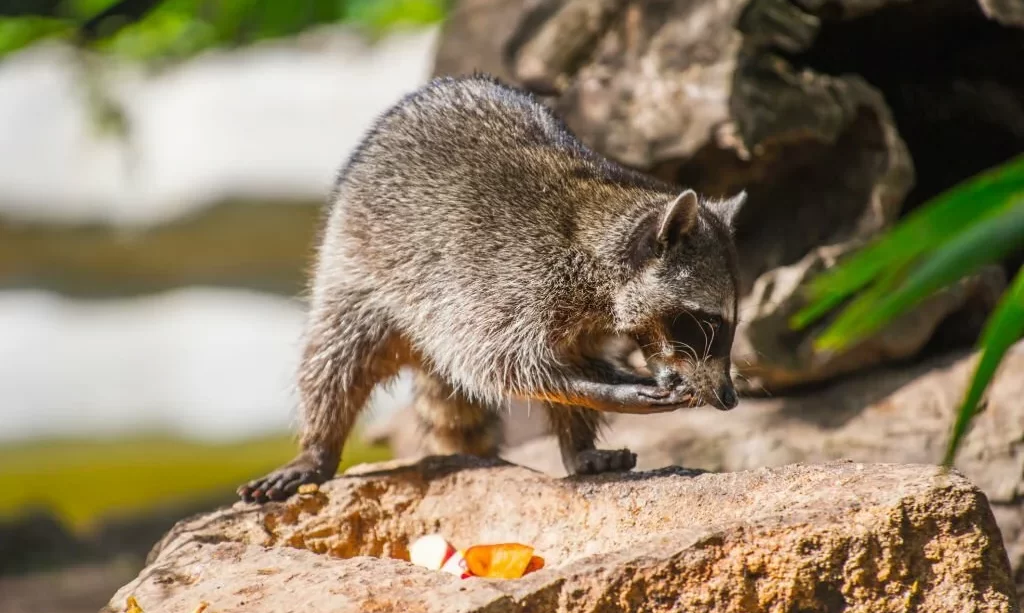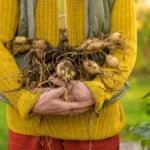Tomatoes are the darlings of many gardens, cherished for their vibrant, juicy fruit and versatility in the kitchen. As gardeners lovingly nurture their tomato plants, they eagerly anticipate a bountiful harvest. However, these red, ripe treasures can also draw the attention of wildlife, and raccoons, with their inquisitive and resourceful nature, often find their way into gardens. This article delves into a common question asked by gardeners: Do raccoons eat tomatoes? By exploring the behavior of raccoons in gardens, we aim to unravel the mystery of whether these intelligent creatures have a penchant for plucking tomatoes from the vine.
The Appeal of Tomato Plants
Tomato plants hold a special place in gardens around the world. Their popularity stems not only from the delectable fruits they yield but also from their versatility. Gardeners cultivate tomatoes for fresh salads, sauces, soups, and an array of culinary creations. The dedication that gardeners invest in nurturing their tomato crops is a testament to the universal love for these plants. However, with their succulent, ripening fruits, tomato plants can become a prime target for various creatures, including raccoons.
The Curious Nature of Raccoons
Raccoons, those masked and ring-tailed bandits, possess a reputation for their clever and adaptable behavior. They are often found foraging in both natural and urban environments, displaying an omnivorous diet that encompasses a wide range of food sources. Raccoons are known to indulge in fruits, vegetables, insects, small mammals, and even human food items. Their curious nature drives them to explore and interact with their surroundings, making them both fascinating and, at times, challenging neighbors for gardeners. This curiosity and adaptability are key factors in understanding whether raccoons have a taste for tomatoes.
Do Raccoons Eat Tomatoes?
The question of whether raccoons eat tomatoes is met with a degree of complexity. Raccoons are opportunistic feeders, and their dietary choices can vary depending on factors such as the availability of other food sources. While tomatoes may not be their top preference, raccoons have been known to munch on ripe tomatoes when they encounter them in a garden. These encounters are more likely when other food sources are limited, and raccoons may resort to foraging for fruits and vegetables to satisfy their dietary needs. However, it’s important to note that raccoons have a diverse diet, and they do not exclusively target tomato plants. Their adaptable feeding habits can include a wide range of foods, from trash and pet food to invertebrates and small mammals.
Protecting Your Tomato Garden
For gardeners eager to protect their beloved tomato plants from potential raccoon damage, several strategies can be employed. One effective approach is the use of physical barriers. Fencing or netting can be employed to encase tomato plants, preventing raccoons from accessing the fruits. Electric fences, in particular, can serve as a strong deterrent for raccoons and other wildlife. Additionally, some gardeners resort to scare tactics like motion-activated lights or sprinklers to startle raccoons away from their gardens.
Another option is the use of repellents and deterrents. These can include both commercial products and homemade solutions like hot pepper sprays or garlic-based concoctions, which create a sensory aversion for raccoons. These methods work by making tomatoes unappealing to raccoons.
In conclusion, the question of whether raccoons eat tomatoes is answered with “sometimes”. While raccoons are not exclusive tomato connoisseurs, they may sample your garden’s offerings under certain conditions. However, with proactive measures such as physical barriers, repellents, and maintaining a clean garden environment that minimizes other food attractions, gardeners can protect their tomato plants and foster a garden that thrives while minimizing potential conflicts with these curious and resourceful wildlife neighbors.
Coexisting with Wildlife
While it’s essential to protect your garden from potential raccoon damage, coexisting with wildlife in a responsible and ethical manner is equally crucial. Raccoons, like other urban-adapted wildlife, are part of our shared environment. They play vital roles in the ecosystem and contribute to its overall health. To strike a balance between safeguarding your garden and respecting wildlife, it’s important to adopt some practices.
One approach is to secure trash bins and compost piles, which can attract raccoons when left exposed. Eliminating potential food sources around your property can help deter these creatures from venturing into your garden. Additionally, consider creating a designated space in your yard for raccoons to forage safely, perhaps offering cat food or other suitable alternatives. This diversion can draw raccoons away from your prized tomato plants.
Conclusion
The behavior of raccoons in gardens, particularly their inclination to eat tomatoes, is a topic that embodies the intricate relationship between humans and wildlife. While raccoons may occasionally nibble on your ripe tomatoes, it’s important to understand that their diet is diverse and opportunistic. Protecting your tomato garden through physical barriers and repellents is a practical approach, but it’s equally important to adopt a broader perspective of coexisting with wildlife.
Striking this balance ensures that both gardeners and raccoons can thrive in their respective habitats. By embracing practices that promote responsible coexistence and minimize conflicts, you can continue to enjoy the beauty and productivity of your garden while respecting the natural world around you. Ultimately, the garden becomes a space where humans and wildlife harmoniously coexist, each playing a vital role in the broader tapestry of life.




